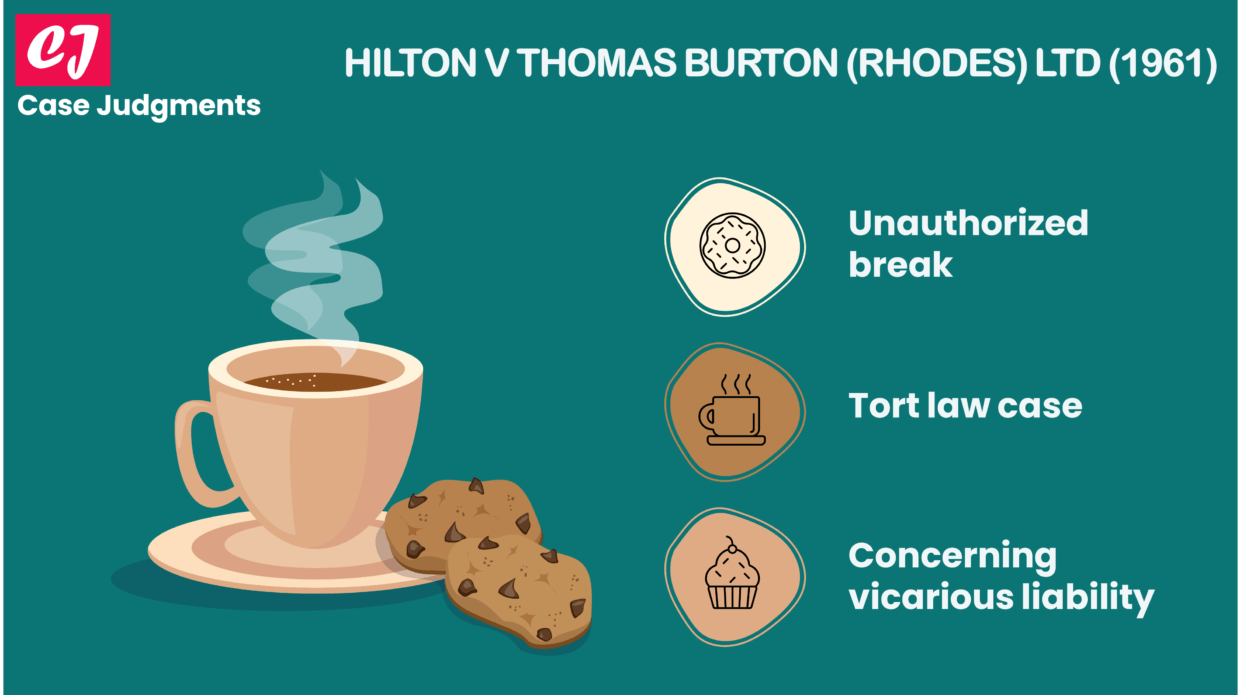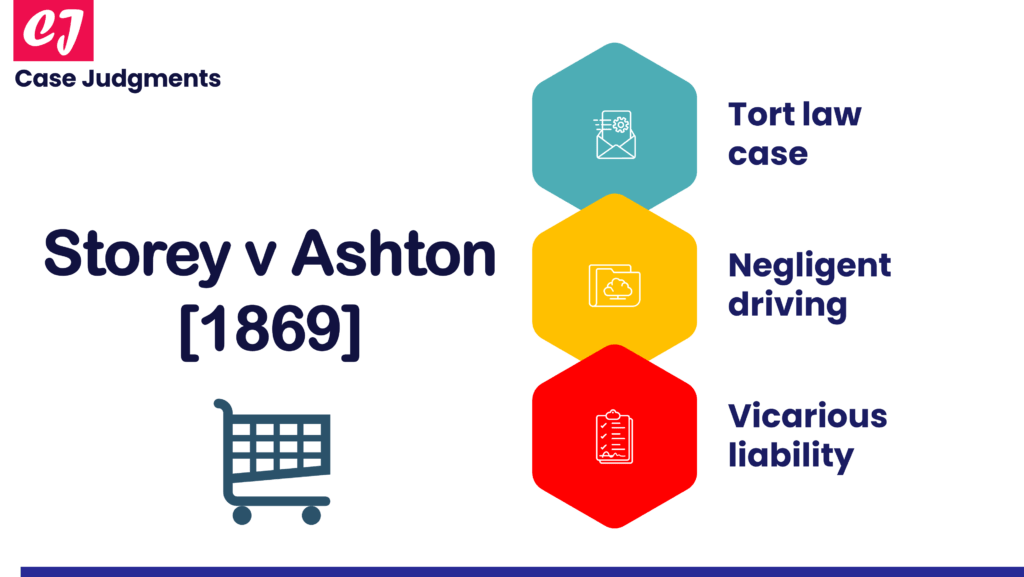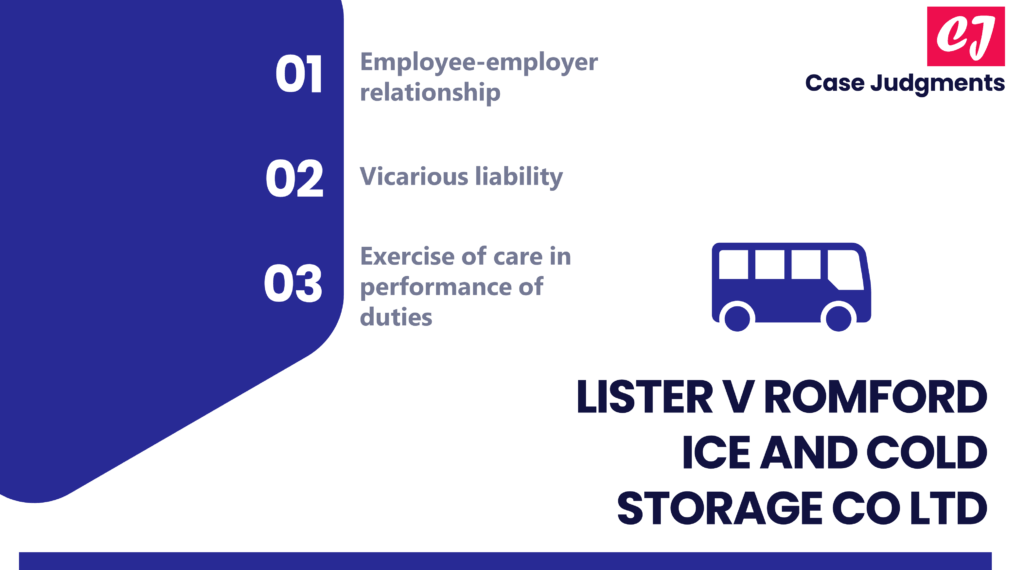
A Quick Summary of Hilton v Thomas Burton (1961)
Case name & citation: Hilton v Thomas Burton (Rhodes) Ltd [1961] 1 WLR 705; [1961] 1 All ER 74
Jurisdiction: England and Wales
Year of the case: 1961
The learned judge: Diplock J
Area of law: Vicarious liability
What is the case about?
Hilton v Thomas Burton (1961) is a tort law case that concerns vicarious liability.
Case facts (Hilton v Thomas Burton)
A group of demolition contractors decided to take an unauthorized tea break and took the employer’s van (they had permission to do so) to a café located eight miles away from their place of work. On the way back, their employer’s van crashed and one of the workers was killed due to the negligence of the driver. His widow filed a lawsuit against the employer.
Issue
Could the employer be held responsible for the actions of the employee who was negligently driving the van?
Judgment of the Court in Hilton v Thomas Burton
The employer was not held vicariously liable for the torts of the employee.
The court determined that the employer could not be held liable because the connection between the incident and the job that the workmen were employed to do was too vague.
The employee was on a “frolic of his own”.
The reasoning behind the decision
When someone is held responsible for the actions of another individual, this is known as vicarious liability. For example, employers may be held liable when employees act negligently. The idea is that it is the responsibility of the company, the manufacturer, or the public body to ensure that their employees have the necessary tools, training, and preparedness to fulfill their roles, not the employees themselves.
In general, employers may be held liable for only those wrongful actions that are carried out in the course of employment.
It is often said that an employee was off on a “frolic of his own” when he or she was engaged in activities unrelated to their employment. This situation may often come up when an employee, while at work or during a break in the day, decides to go off on their own and engage in an activity that is not directly related to the work that they do as part of their regular employment. In such cases, the employer won’t be liable.
List of references:
- http://ndl.ethernet.edu.et/bitstream/123456789/58210/1/7.pdf
- https://www.uni-trier.de/fileadmin/fb5/FFA/KURSUNTERLAGEN/Anglo-Amerikanisches_Recht/Law_of_Torts/SS-2009/Torts.doc
- https://shura.shu.ac.uk/21451/1/White_2017_LLB_CriticalAnalysisOf.pdf
- https://law205.weebly.com/vicarious-liability.html
You might also like:
More from tort law:

